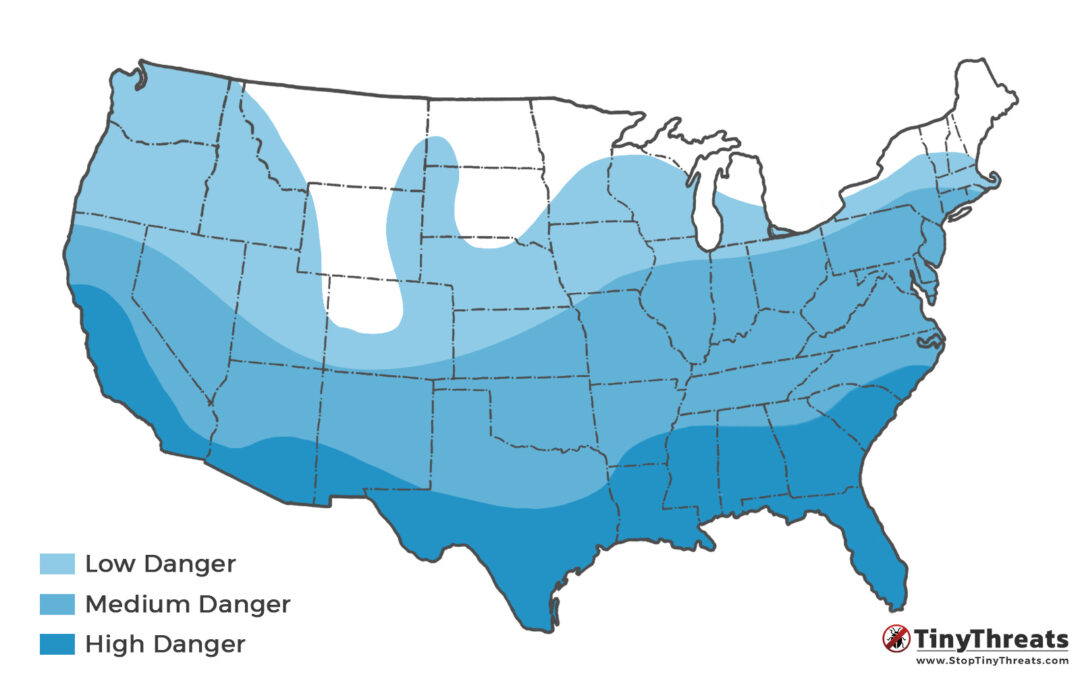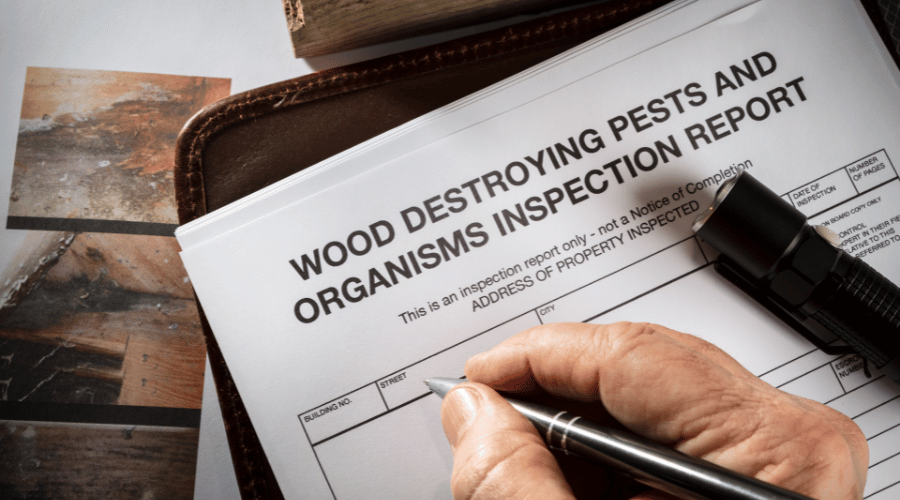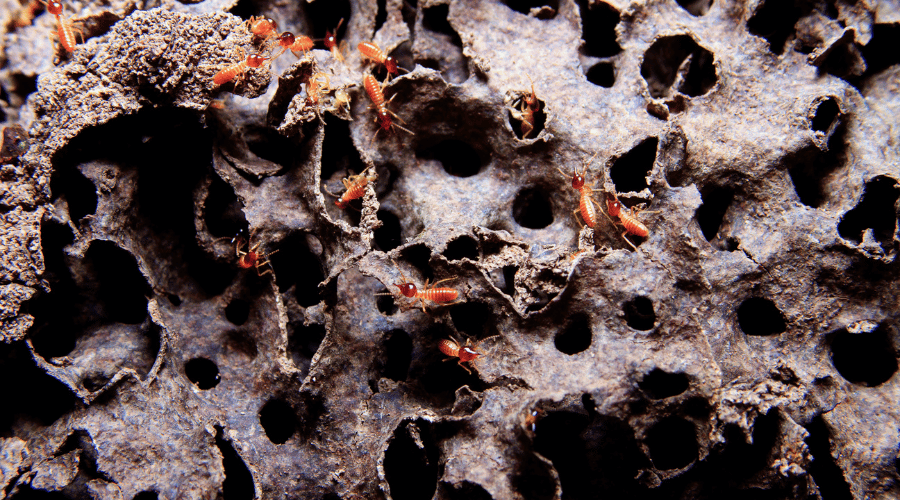A termite bond is an agreement between a property owner and a termite company that outlines the terms and conditions of termite prevention, treatment, and damage repair.
If you’re considering signing a termite bond, it’s important to understand what this contract covers, what it does not, and when you are required to have one.
Here are 11 facts about termite bonds that will help you make an informed decision.
Also read: Learn the basics of termite bonds in our dedicated article!
Table of Contents
1. Is a termite bond a waste of money?
Are termite bonds worth it? It’s hard to say without knowing the specifics of your situation, but in general, they are a good idea because they provide peace of mind.
A termite bond is an agreement between a homeowner and a professional pest control company that guarantees that any infestations with these insects will be treated free of charge.
In addition, having a reputable pest control company regularly inspect your home can help detect problems before they get out of hand and are more expensive to fix.
Finally, most termite bonds also include all repairs that are necessary because of termite damage.
All in all, it’s well worth the cost if you are able to have it tacked onto regular home insurance or are able to get a better rate through bundling services.
2. Do termite bonds cover damage?
Basically, a termite bond provides protection against termite damage for a defined period of times, and usually includes free prevention measures, free treatment in case of an infestation, and free repairs if necessary.
While the average cost for an annual termite bond can range from around $200 to $600 per year, what it buys you is priceless peace of mind knowing that if your home or business does suffer from termite damage that was covered by the bond, you can get back some or all of the cost associated with treatment and repairing the damage.

3. Can you transfer a termite bond to another company?
Termite bonds can sometimes be transferred to another termite control company. However, this is not guaranteed, and usually depends on the quality and reputation of the original company and treatment, as wells as the terms of the contract.
When transferring a termite bond to another termite control company, be sure that all the same terms and conditions of the original contract are included in the new termite bond. This means that you should keep an eye out for any additional fees or requirements that may not have been part of your original agreement.
4. Can you transfer a termite bond to another homeowner when buying/selling a home?
When purchasing or selling a home, termite bonds are not always transferable.
In some cases, if the original contract is still valid, then it may be possible to transfer the bond but it will most likely require an amendment and can involve additional fees.
Additionally, if the new homeowner doesn’t agree to assume responsibility for all terms in the contract, then the transfer process may not be successful.
If you buy a home, make sure to contact the bond’s pest control company and ask about the transfer. Ideally, get the terms for the transfer in writing in case there is any trouble later.
5. Should you renew your termite bond?
If your home is potentially vulnerable to termite damage, you should definitely consider renewing your termite bond.
Termites cause billions of dollars worth of damages each year, so having a termite bond in place is essential for protecting your home from extensive damage.
While you have an active termite bond, an inspector will come out periodically to inspect the house and check for any signs of infestation. If any pest activity is detected, you won’t have to pay for the treatment – which can cost between $500 and $2,000. This security is already worth it to most homeowners.
6. What happens if a termite bond lapses?
When your termite bond expires or lapses, you might not get the full protection that was promised with your bond, or any protection at all.
If you discover your bond has lapsed, it’s important to take action and contact your pest control provider as soon as possible in order to get protection restored quickly.
Depending on the terms of your bond agreement, you may also need to pay a renewal fee in addition to an inspection fee.
It’s best to ask your pest control providers about the renewal before the contract expires for continuous protection and to avoid unexpected fees.
7. Are you required to have a termite bond?
A termite bond is usually only required when you buy, sell, or take a loan on a house.
Additionally, you may need a termite letter, which is actually called a Wood-Destroying Insect Report (WDIR) – but that is a completely different topic. This letter is an official document about an assessment of your property, but does not include any services or contracts.
However, even if a termite contract is not legally required in most situations, it might still be necessary for your insurance or pest control provider.
Since such a contract basically guarantees professional protection, it’s not only good for your peace of mind, but also guarantees your home’s value will remain stable without the risk of termites destroying it.

8. Do you need a termite bond to sell your house?
When selling your house, a termite bond may be required – check with local real estate experts or lawyers if you want to be sure.
Though it may seem like an unnecessary added expense, having a termite bond can make all the difference when getting your home ready to sell on the market.
While repairs to any existing damage caused by termites aren’t usually required in order to close the sale, most buyers will include it as part of their inspection anyway, so it’s best to address it beforehand and ensure that you have coverage before listing your home.
With a valid termite bond in place, buyers can feel confident that any pests or related damage won’t be their responsibility after closing!
Make sure to check with your pest control provider about transferring the bond – this may require additional fees that you should know about.
9. Does the FHA require a termite bond?
The Federal Housing Administration (FHA) is a government agency that insures home loans, which makes it easier for people to buy homes. The FHA does not typically require a termite bond as part of that loan process, but some lenders ask for one if they feel there is a potential for pest infestation or damage.
While this kind of bond is usually separate from any mortgage loan, it’s definitely worth considering if you’re buying a property in an area that could be prone to pest issues. Even though an FHA loan doesn’t often demand it, having a termite bond can give you added peace of mind and make sure that your home is safe from any unwanted invaders.
10. Do you need a termite bond on a brick house?
Brick houses are not as impenetrable by termites as many think, so having a long-term protection plan in place is still a good idea.
A termite bond is a great way to ensure your brick house stays free from termites. While brick might be thought of as safe from these pests, that’s often not the case – in which case you might face unexpected costs of treatment and repairs, which can quickly cost many thousand dollars.
Getting a yearly inspection included with a termite bond can keep your brick home safe. You will likely need fewer preventative treatments and can get a cheap price on the contract.
11. Do termite bonds cover carpenter ants?
Generally speaking, no – even though they’re both wood-boring insects, a termite bond is specific to termites and won’t protect against an infestation of carpenter ants.
Getting the right kind of protection is important in any situation – so if you think you might have an issue with carpenter ants on your property, reach out to an experienced pest control company that knows how to identify and treat these kinds of insects!
However, many companies offer a service similar to a termite bond that protects against many or all pests in your home – ask your local representatives if you have such options!




